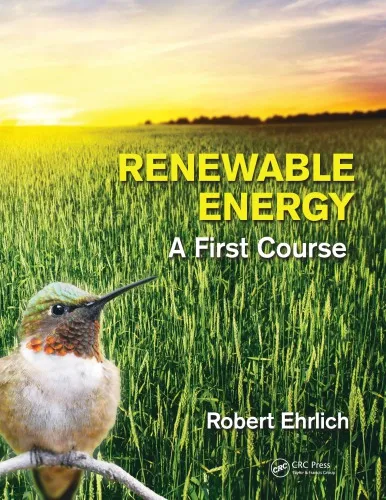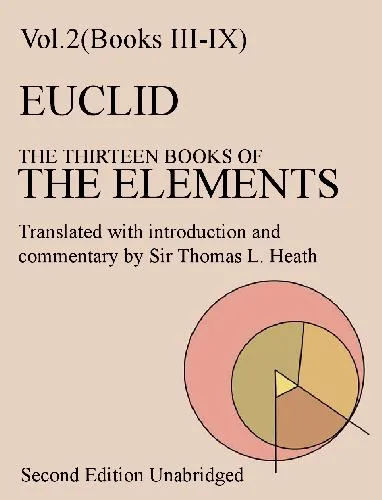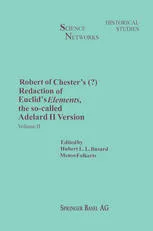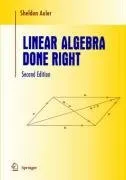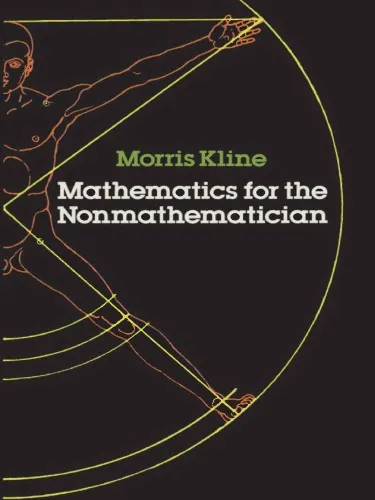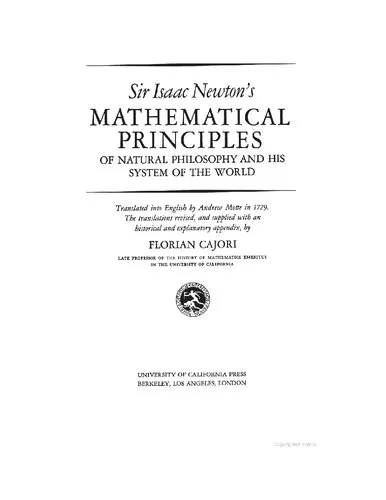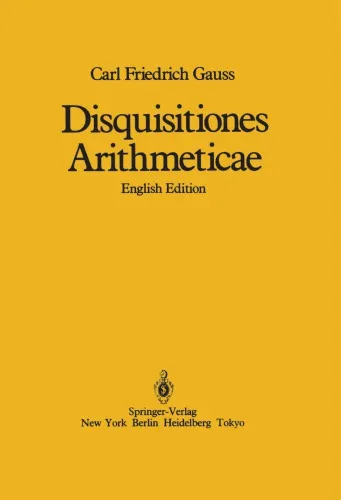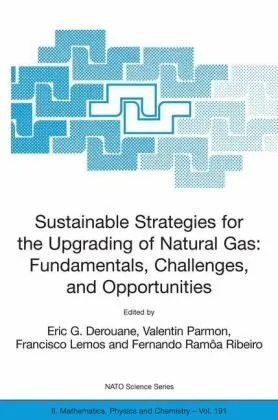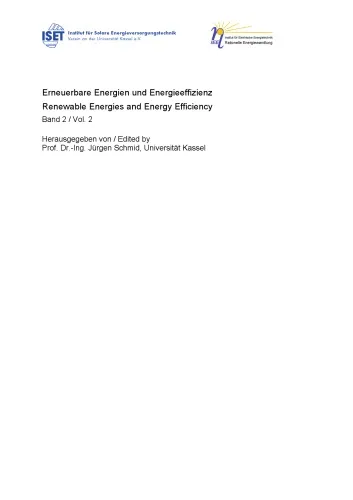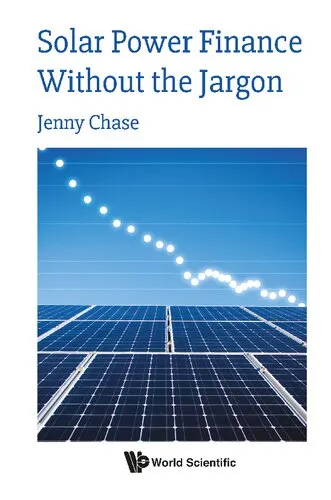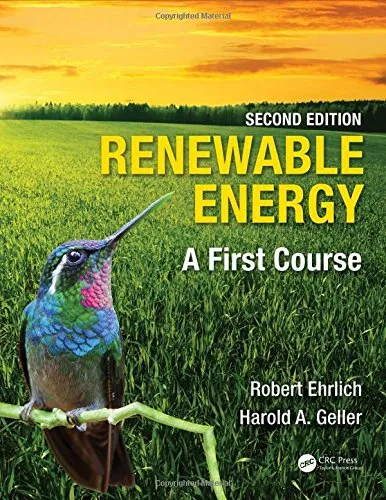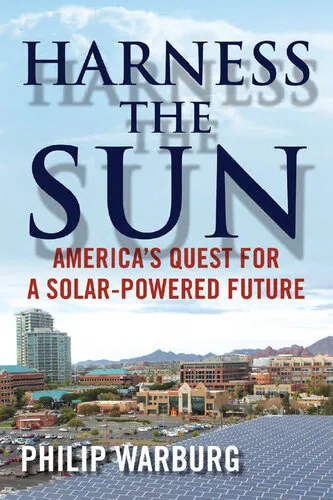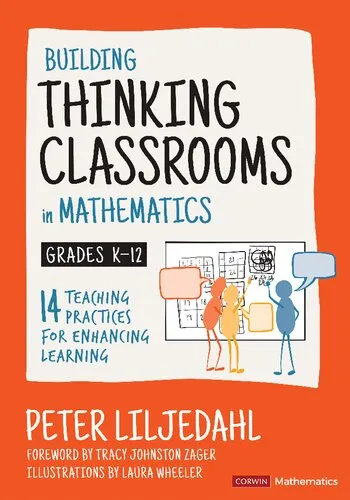Renewable Energy : A First Course
4.5
Reviews from our users

You Can Ask your questions from this book's AI after Login
Each download or ask from book AI costs 2 points. To earn more free points, please visit the Points Guide Page and complete some valuable actions.Related Refrences:
Introduction to "Renewable Energy: A First Course"
Welcome to "Renewable Energy: A First Course," an insightful and comprehensive guide designed to introduce readers to the dynamic and ever-important field of renewable energy. In the face of growing concerns regarding climate change, rising energy demands, and a finite supply of fossil fuels, understanding renewable energy sources has never been more critical. In this book, I, Robert Ehrlich, aim to offer a practical, accessible, and multidisciplinary approach to renewable energy, suitable for students, professionals, and enthusiasts alike.
The book is crafted to serve as a first step for anyone looking to embark on an intellectual journey into renewable energy systems, technologies, and the science that powers them. Whether you are a beginner seeking to understand the basics or a professional interested in enhancing your knowledge, this book acts as a bridge connecting theoretical knowledge to real-world applications.
Detailed Summary of the Book
"Renewable Energy: A First Course" is structured to provide a broad yet detailed survey of renewable energy technologies, explaining scientific principles while also focusing on their applications and impact.
In the early chapters, the book introduces readers to the fundamental concepts of energy and renewable energy systems. From basic principles of physics and thermodynamics to an evaluation of current energy consumption and challenges, these initial sections establish a firm foundation.
Subsequent chapters delve into a variety of renewable energy sources, including solar, wind, geothermal, hydro, and biomass. For each technology, the book covers essential topics such as how the energy source is harnessed, the engineering technologies involved, efficiency metrics, and environmental considerations. Special emphasis is placed on solar energy as it is one of the most widely available and rapidly advancing renewable technologies.
Later sections explore advanced topics such as energy storage, electricity generation, grids, and smart technologies that enable renewable integration into current systems. The book doesn’t just stop at technical details; it also examines economic feasibility, policy implications, and societal impacts, resulting in a well-rounded and balanced perspective.
The text concludes with a discussion of the future landscape of energy, encouraging readers to think critically about potential challenges and solutions, with an optimistic perspective on humanity's transition to a renewable future.
Key Takeaways
- Understand the science and engineering principles behind multiple renewable energy sources such as solar, wind, and geothermal energy.
- Explore the socio-economic and environmental considerations involved in adopting renewable energy.
- Learn about emerging technologies such as energy storage systems and how they complement green energy solutions.
- Gain a basic understanding of integrated and smart grids, and how renewable energy interacts with traditional power systems.
- Develop a holistic view of renewable energy, from scientific principles to real-world applications and policy implications.
Famous Quotes from the Book
"The energy we require to power humanity's future already exists, shining above our heads, blowing across our landscapes, and flowing through our rivers. Harnessing it is not just a technical challenge—it's an ethical imperative."
"Renewable energy is not merely about switching sources; it’s about rethinking how we produce, consume, and respect energy in harmony with our planet."
Why This Book Matters
In an era increasingly defined by climate crises and resource constraints, "Renewable Energy: A First Course" stands as a crucial educational tool for fostering an understanding of sustainable energy solutions. As governments, industries, and communities move toward carbon neutrality, renewable energy education becomes paramount.
This book matters because it makes a complex and technical subject accessible to a wide audience. By blending scientific rigor with practical examples and clarity, I aim to inspire readers to not only understand renewable energy but also advocate for its adoption. Whether you are a policymaker evaluating energy incentives, an engineer designing solar panels, or a curious student, this book equips you with the knowledge and motivation to contribute meaningfully to a cleaner and more sustainable future.
Lastly, renewable energy is not just a subject; it’s a movement. This book encourages every reader to become a part of that movement—so they can help power a brighter and greener tomorrow.
Free Direct Download
You Can Download this book after Login
Accessing books through legal platforms and public libraries not only supports the rights of authors and publishers but also contributes to the sustainability of reading culture. Before downloading, please take a moment to consider these options.
Find this book on other platforms:
WorldCat helps you find books in libraries worldwide.
See ratings, reviews, and discussions on Goodreads.
Find and buy rare or used books on AbeBooks.
